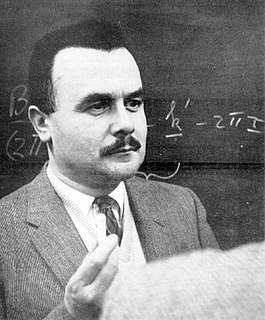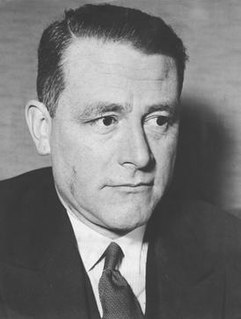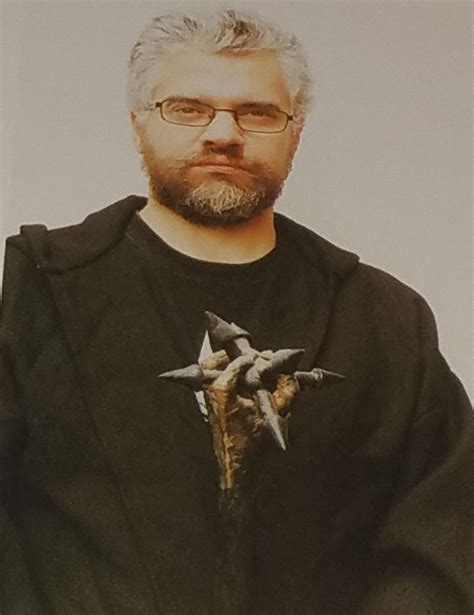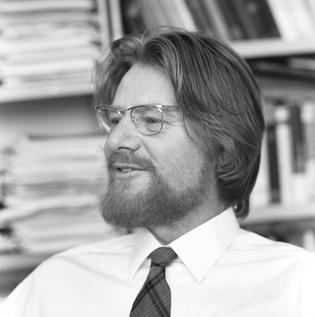A Quote by Abraham Kaplan
We are caught up in a paradox, one which might be called the paradox of conceptualization. The proper concepts are needed to formulate a good theory, but we need a good theory to arrive at the proper concepts.
Related Quotes
For strictly scientific or technological purposes all this is irrelevant. On a pragmatic view, as on a religious view, theory and concepts are held in faith. On the pragmatic view the only thing that matters is that the theory is efficacious, that it 'works' and that the necessary preliminaries and side issues do not cost too much in time and effort. Beyond that, theory and concepts go to constitute a language in which the scientistic matters at issue can be formulated and discussed.
Oh my God, does art engender humanity? It awakens your humanity. But humanity has nothing to do with political theory. Political theory is in the interests of one group of humanity, or one ideal for humanity. But humanity-my heavens, that's what proper art renders. We have a paradox. Going into the deepest aspects of inner space connects you with something that is the most vital for the outer realm.
Catastrophe Theory is-quite likely-the first coherent attempt (since Aristotelian logic) to give a theory on analogy. When narrow-minded scientists object to Catastrophe Theory that it gives no more than analogies, or metaphors, they do not realise that they are stating the proper aim of Catastrophe Theory, which is to classify all possible types of analogous situations.
Henceforth, whilst there are a great many theories and models proposed as to how, or why, magic works (based on subtle energies, animal magnetism, psychological concepts, quantum theory, mathematics or the so-called anthropomorphic principle) it is not a case that one of them is more 'true' than others, but a case of which theory or model you choose to believe in, or which theory you find most attractive. Indeed, from a Chaos Magic perspective, you can selectively believe that a particular theory or model of magical action is true only for the duration of a particular ritual or phase of work.
The concept of 'measurement' becomes so fuzzy on reflection that it is quite surprising to have it appearing in physical theory at the most fundamental level ... does not any analysis of measurement require concepts more fundamental than measurement? And should not the fundamental theory be about these more fundamental concepts?
The definition of good prose is proper words in their proper places; of good verse, the most proper words in their proper places.The propriety is in either case relative. The words in prose ought to express the intended meaning, and no more; if they attract attention to themselves, it is, in general, a fault.
The fact of evolution is the backbone of biology, and biology is thus in the peculiar position of being a science founded on an unproved theory -is it then a science or a faith? Belief in the theory of evolution is thus exactly parallel to belief in special creation - both are concepts which believers know to be true but neither, up to the present, has been capable of proof.
Relativity was a highly technical new theory that gave new meanings to familiar concepts and even to the nature of the theory itself. The general public looked upon relativity as indicative of the seemingly incomprehensible modern era, educated scientists despaired of ever understanding what Einstein had done, and political ideologues used the new theory to exploit public fears and anxieties-all of which opened a rift between science and the broader culture that continues to expand today.
A theory is the more impressive the greater the simplicity of its premises is, the more different kinds of things it relates, and the more extended is its area of applicability. Therefore the deep impression which classical thermodynamics made upon me. It is the only physical theory of universal content concerning which I am convinced that within the framework of the applicability of its basic concepts, it will never be overthrown.
In 1975, ... [speaking with Shiing Shen Chern], I told him I had finally learned ... the beauty of fiber-bundle theory and the profound Chern-Weil theorem. I said I found it amazing that gauge fields are exactly connections on fiber bundles, which the mathematicians developed without reference to the physical world. I added, "this is both thrilling and puzzling, since you mathematicians dreamed up these concepts out of nowhere." He immediately protested: "No, no. These concepts were not dreamed up. They were natural and real."
If the theory accurately predicts what they [scientists] see, it confirms that it's a good theory. If they see something that the theory didn't lead them to believe, that's what Thomas Kuhn calls an anomaly. The anomaly requires a revised theory - and you just keep going through the cycle, making a better theory.
It must be conceded that a theory has an important advantage if its basic concepts and fundamental hypotheses are 'close to experience,' and greater confidence in such a theory is certainly justified. There is less danger of going completely astray, particularly since it takes so much less time and effort to disprove such theories by experience. Yet more and more, as the depth of our knowledge increases, we must give up this advantage in our quest for logical simplicity in the foundations of physical theory.







































